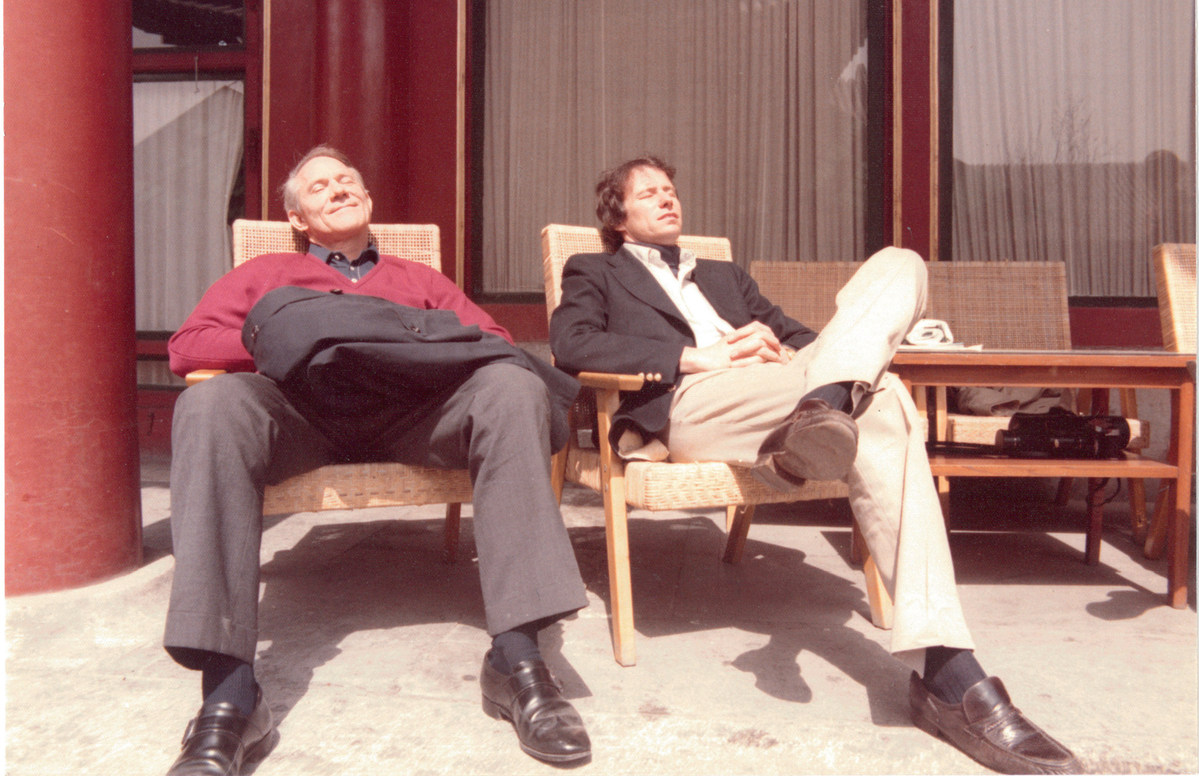Don Bonker: Longtime hand in US-China trade
By Charlene Cai in Washington | China Daily Global | Updated: 2019-04-19 22:42

Editor's Note: "My China Album", a story-sharing project run by the Chinese embassy in Washington and China Daily, aims at highlighting the friendships between Chinese and American people, as expressed in photographs and accompanying captions. Those interested in participating in the program are invited to submit up to three photos with accompanying captions of 300 words or less, explaining the person-to-person exchange or relationship depicted in the photo. The deadline for submissions is April 19, 2019. For more details visit http://global.chinadaily.com.cn/mychinaalbum.
Five years into representing the state of Washington in the US Congress in the late '70s, Don Bonker got a rare treat: a visit to China, a country once regarded by the United States as the "red enemy" and eventually considered its new friend.
Bonker landed in China on the official US Air Force plane in April 1980 — less than one and half years after the two countries established diplomatic relations in January 1979 — along with five other congressmen from committees that oversaw the bilateral relationship.
The delegation, presumably the first to visit China since normalization, was organized by the House Foreign Affairs Committee, according to Bonker, who at the time chaired the Subcommittee on International Economic Policy and Trade.
Now in his early 80s, Bonker still vividly remembers what China looked like then.
"The US–China normalization of relations was an eye-opener. We had knowledge of China's glorious history but were stunned by what we witnessed in each of the cities we visited, Beijing, Shanghai and Hangzhou. On the streets, no vehicles, and people mostly wore masks, probably due to pollution. There were no prominent hotels or restaurants," said Bonker.
Bonker's wife, Carolyn, who accompanied him on the trip, still keeps the bi-lingual pamphlet from where they stayed in Shanghai, the Jin Jiang Hotel, the best in the city, and the elaborately decorated bi-lingual menu from a banquet hosted by Shanghai's mayor.
Although China at that time looked gray and backward with bicycles everywhere and facilities in dire condition, everyone in the trip could feel there was something powerful just waiting to be unleashed, Bonker said.
"You could just tell. A nation of this size, a population of this scale, now with the cultural revolution (1966-1976) behind it, was bound to reborn itself to the greatness it once had," said Bonker.
The spirit of the Chinese people also has stayed in Bonker's memory. Sitting in a bus stuck in traffic along the famous harbor road of Shanghai, Bonker and the delegation found that they were suddenly surrounded by thousands of staring Chinese, most of whom had rarely seen foreigners. They were all in military-like attire, looking curious but cautious.
Suddenly, Charles Vanik, chair of the powerful House Ways and Means Subcommittee on Trade, opened the bus window and started singing the popular song from the Disney movie Song of the South: "Zip-a-dee-doo-dah, zip-a-dee-ay, My, oh, my, what a wonderful day…".
Everyone in the bus joined in singing along. Then magic happened.
"We witnessed a sea of smiles that spread throughout the crowd. It was a delightful few minutes, as smiles replaced the otherwise grim faces," recalled Bonker.
In the heavy album of their China trip, there is one photo Bonker likes most. It is a child asleep on the shoulder of an adult, a scene they captured on street. Carolyn wrote a caption under the photo: "China is truly a sleeping giant awakening."
"My wife really had the vision to predict China's future," said Bonker proudly.

The Bonkers experienced one "awakening" of China firsthand. While taking a stroll in Shanghai, the delegation was approached by a young man, who invited the group to his parents' small apartment for dinner.
A few years later, as China was opening up to the world, the same young man came to American University in Washington to study, becoming a welcomed guest at the Bonker's apartment on many holiday occasions.
"We treated him like our family. He was very committed to his education here," said Bonker.
In 2018, Bonker returned to Shanghai as a member of a delegation organized by the US Association of Former Members of Congress. That same young man, David Jin, former CEO of Philips Healthcare China and now chairman and president of Harman International, a Fortune 500 company, hosted the group in one of the most prestigious business clubs in Shanghai, a city that had completely transformed itself from the one that Bonker had visited 38 years earlier.
Another former US congressman, Tim Roemer of Indiana, was also in the delegation. "He murmured to me, 'Don, I feel like I am in New York'," recalled Bonker.
After leaving Congress in 1989, Bonker founded non-profit organization International Management and Development Institute, promoting collaborations between the US and European nations.
He also served as an executive for APCO Worldwide, a public relations firm that has established itself well in China, serving leading Chinese companies and bringing Bonkers back to China from time to time.
"What's amazing is the growth of private sector companies, many now leaders in the global economy. Even SOE's adhere to market economies and are often more accountable to banks than to ministries. China still embraces Communism, but it has entrepreneurial talent that is unmatched in the 21st century," said Bonker.
While in Congress, Bonker also served on the President's Export Council, authoring significant trade legislation. He also published a book titled America's Trade Crisis.
Trade, Bonker says, is his subject and he's been paying particularly close attention to the current trade dispute and negotiations going on between China and the US.
"The US should focus on increasing its exports to China instead of trying to suppress imports from there," Bonker said. "Exports to China have generated numerous jobs in the US and raised the living standard of Americans. Now exports are being hurt significantly by tariffs, which hurt jobs.
"The bottom-line is China is surpassing the US as the global leader, and for many US government and policy leaders, it is disturbing," he added.
Bonker is working on a new memoir, Dancing to the Capitol, which he hopes will come out in a few months.
"I know the Chinese like the hugely popular TV soap opera House of Cards. My book does not offer that kind of excitement, but it does have a lot of entertaining anecdotes about how the US Congress works," said Bonker.
























